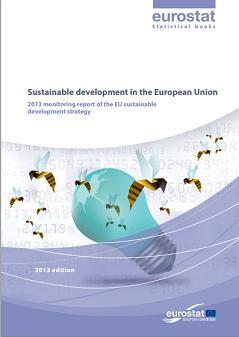European Commission, (2013), Standard Eurobarometer 80, European Commission / Directorate-General for Communication, December. This report presents the first results of the Standard Eurobarometer 80 survey, which was carried out between 2 and 17 November 2013 in 34 countries or territories: the 28 European Union Member States, the five candidate countries (the Former Yugoslav Republic of Macedonia, Turkey, Iceland, Montenegro and Serbia), and the Turkish Cypriot Community in the part of …Read More
Beyond Rising Unemployment: Unemployment Risk, Crisis and Regional Adjustments in Greece
Monastiriotis, V. and Martelli, A., (2013), “Beyond Rising Unemployment: Unemployment Risk, Crisis and Regional Adjustments in Greece”, Hellenic Observatory Papers on Greece and Southeast Europe, GreeSE Paper No.80, December. The remarkable rise in unemployment in Greece has in a way overshadowed the substantial differentiation, across regions, in terms of regional unemployment and labour market adjustment. This paper examines the geography of these dynamics using probit regressions of unemployment risk and …Read More
A Eurozone Report Card 2013
Weeks, J., (2013), “A Eurozone Report Card 2013”, Social Europe Journal, 23 December. Three and one-half years ago the infamous Troika (IMF, European Commission and the European Central Bank, with the German government in close attendance) began its unsuccessful attempt to contain the crisis of the Eurozone, with a draconian austerity program for Greece. Subsequently, the Troika would add Ireland, Italy, Portugal and Spain to its list for the austerity …Read More
New Evidence on the Remedies of the Greek Sovereign Debt Problem
Apergis, N. and Cooray, A., (2013), “New Evidence on the Remedies of the Greek Sovereign Debt Problem”, Hellenic Observatory Papers on Greece and Southeast Europe, GreeSE Paper No.79, November. The goal of the present paper is to investigate not only the dynamics of the Greek public debt, but also what are the appropriate measures required for achieving fiscal consolidation. The empirical estimation is carried out using a macroeconomic dataset spanning …Read More
The primary response by Greek parties to the crisis has been to divert political accountability through populist blame-shifting
Vasilopoulou, S., Halikiopoulou, D. and Exadaktylos, T., (2013), “The primary response by Greek parties to the crisis has been to divert political accountability through populist blame-shifting”, LSE European Politics and Policy Blog, 18 December. Greece has been hit harder by the financial crisis than any other EU member state, with the economic fallout threatening to undermine the country’s democratic system. Based on an analysis of political speeches, Sofia Vasilopoulou, Daphne …Read More
Sustainable development in the European Union
Eurostat, (2013), Sustainable development in the European Union: 2013 monitoring report of the EU sustainable development strategy, European Union and Eurostat: Luxembourg. Of the more than 100 indicators presented in this report, 12 have been identified as headline indicators. They are intended to give an overall picture of whether the EU has achieved progress towards sustainable development in terms of the objectives and targets defined in the EU Sustainable Development …Read More
Employment Outlook Survey
Manpower, (2013), “Employment Outlook Survey: Global – Q1/2014”, ManpowerGroup, December. Each quarter ManpowerGroup conducts research to measure employment trends* in the world’s major labor markets. To measure hiring expectations between January and March 2014, ManpowerGroup interviewed over 65,000 employers in 42 countries and territories. Despite continuing economic challenges and widespread uncertainty in the global labor market, the first-quarter research reveals that the majority of hiring managers will continue to add …Read More
Debt relief or debt restructuring for Greece?
Bastian, J., (2013), “Debt relief or debt restructuring for Greece?”, MacroPolis, The Agora Blog, 08 December. The two economic adjustment programmes for Greece from 2010 and 2012 as well as the sovereign debt restructuring from April 2012 and the debt buyback initiative in December of the same year have had a significant impact on the debt profile of Greece as a sovereign debtor. Greece’s creditor structure in 2013 compared to …Read More
The Re-Division of Europe
Papantoniou, Y., (2013), “The Re-Division of Europe”, Project Syndicate, 06 December. As the eurozone debt crisis has steadily widened the divide between Europe’s stronger northern economies and the weaker, more debt-laden economies in the south (with France a kind of no man’s land economy in between), one question is on everyone’s mind: Can Europe’s monetary union – indeed, the European Union itself – survive? While the eurozone’s northern members enjoy …Read More
Flat Income Tax Rates. A Fresh Start?
Karavitis, N., (2013), “Flat Income Tax Rates. A Fresh Start?”, Foundation for Economic and Industrial Research, July. The aim of the report is to contribute to the public discourse on flat income tax rates. Apart from the description of the functions, forms and effects of taxation in general, the report proceeds deeper in the analysis of the characteristics of the Greek taxation system, presenting the ongoing 2013 income tax reform. …Read More





